
Our standard therapies for peripheral T-cell lymphoma may cure a subset of patients, and thus far novel agents have not changed the outcomes for the majority.

Your AI-Trained Oncology Knowledge Connection!


Our standard therapies for peripheral T-cell lymphoma may cure a subset of patients, and thus far novel agents have not changed the outcomes for the majority.

This article evaluates the most up-to-date peer-reviewed published work on the treatment of peripheral T-cell lymphoma, and offers a glimpse into the current upfront clinical trial landscape for patients affected by this uncommon disease.
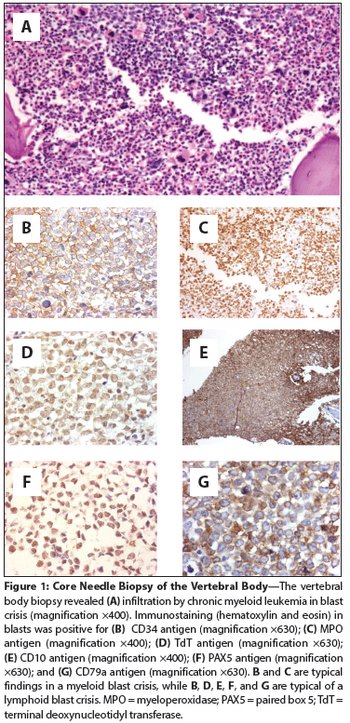
A 45-year-old man with a known history of rheumatic fever and aortic valve replacement 15 years earlier presented with the chief complaint of a 1-month history of progressive, intense, nonmechanical lumbar pain.
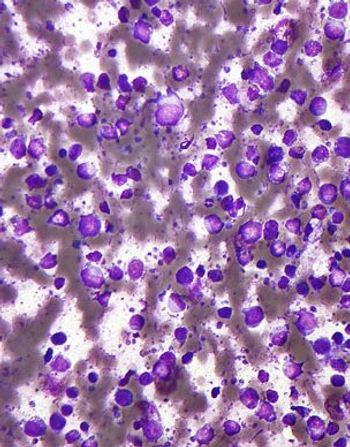
Using a gene expression-based assay on formalin-fixed paraffin-embedded tissue, researchers were able to identify groups among DLBCL patients with significantly different outcomes from R-CHOP treatment.

Ponatinib yielded complete cytogenetic responses in most patients with newly diagnosed chronic-phase CML, but the risk of vascular events suggests other agents should first be considered.

While the risk of a new treatment-related cancer diagnosis after childhood is known, a new study now shows that this risk remains into the fifth and sixth decade of life.
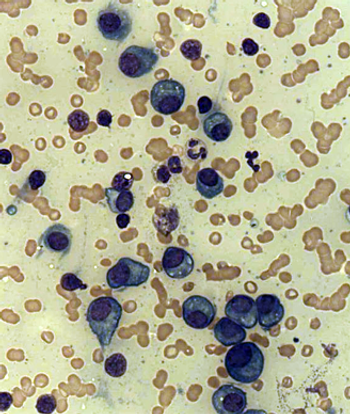
The International Myeloma Working Group has published a revised International Staging System for multiple myeloma that incorporates chromosomal abnormalities.
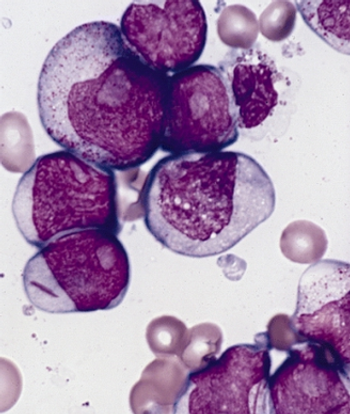
Adding vosaroxin to cytarabine resulted in no significant improvement in overall survival in patients with relapsed or refractory acute myeloid leukemia, but the trial did suggest that vosaroxin could be an option for salvage therapy in patients aged 60 and older.
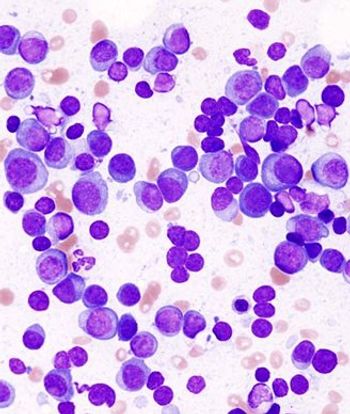
Eighty percent of patients with advanced multiple myeloma had a clinical response to a new T cell–receptor therapy that used T cells to target cells expressing NY-ESO-1.

Results of a new study have indicated that the risk of developing melanoma may be almost doubled among certain survivors of chronic lymphocytic leukemia/small lymphocytic lymphoma.

Treatment of CML with various tyrosine kinase inhibitors can induce changes in glomerular filtration rate over time and have other kidney-related effects.

The FDA approved the proteasome inhibitor carfilzomib for the treatment of multiple myeloma, when used in combination with lenalidomide and dexamethasone.

While the headliners for the 2015 ASCO Annual Meeting featured mainly immunologic approaches to cancer treatment, with agents such as nivolumab and ipilimumab, the new data in hematologic malignancies highlighted a large number of novel therapies, each of which appears promising.
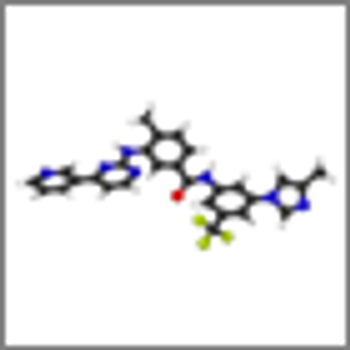
Long-term follow-up of a phase II study shows that nilotinib is highly effective in treating chronic phase CML as a first-line therapy, though with relatively common cardiovascular toxicity associated with treatment.

Lymphoma survivors who underwent autologous HSCT may be at greater long-term risk for heart failure and left ventricular systolic dysfunction than previously thought.

Patients with CML undergoing treatment with dasatinib had a narrower spectrum of mutations in BCR-ABL1 compared to those treated with imatinib.

Treatment with carfilzomib plus lenalidomide and dexamethasone resulted in high rates of minimal residual disease negativity in patients with newly diagnosed or smoldering high-risk multiple myeloma.

Advanced Hodgkin lymphoma patients who discontinue their treatment with bleomycin and vincristine as part of a BEACOPP regimen did not experience an effect on survival.

Results of a large trial have indicated that the use of interim PET/CT imaging has limited prognostic value to DLBCL patients being treated with R-CHOP-14.

Use of a VD regimen alone to treat patients with transplant-ineligible multiple myeloma was not inferior to VTD or VMP regimens, according to the UPFRONT trial.

Sarcomas are a heterogeneous and motley collection of cancers, which struggle with an identity crisis on many levels. The trials often lump vastly different subgroups, and are often unable to collect sufficient numbers of any one disease subtype to complete a unique cohort.

Advanced imaging techniques could allow clinicians the ability to determine as early as 9 days into sarcoma treatment whether the therapy will be effective in a given patient, according to a new University of Michigan study.

Zoledronic acid did not have any antitumor effect in asymptomatic multiple myeloma patients in relapse, but did delay symptomatic progression and bone disease.

Treatment with lenalidomide and the HDAC inhibitor vorinostat may be effective as a maintenance therapy in multiple myeloma patients after autologous transplant.

In a heavily pretreated multiple myeloma (MM) population, daratumumab monotherapy at 16 mg/kg showed meaningful, durable, single-agent activity, with deep responses and a favorable safety profile, according to a new phase II study.